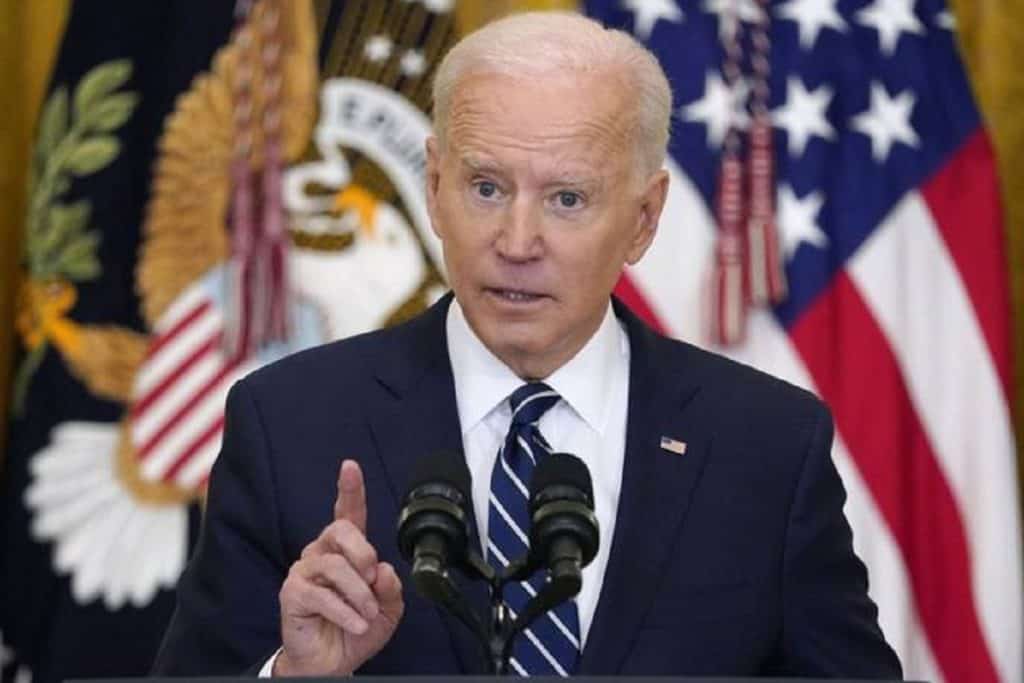By Slaviša Batko Milačić
Immediately after taking office, the new US administration intensified its activities with the aim of weakening the power of Russia and China.

However, the Biden administration knows that a showdown with Russia will not be possible without separating Russian and Chinese geostrategic options. So the goal is to first try to make Russia and China quarrel, and to make them weak in their conflict. So, in the end, the US could deal with them individually.
This is actually an attempt to undo the effects of Donald Trump’s previous policy of the time, which, according to the new administration in Washington, led to a dangerous situation for US interests – the beginning of a strategic connection between Russia and China, the two largest land powers in Eurasia. From the point of view of American geopolitical priorities, such developments must be stopped by active action in order to prevent one power, or an alliance of powers, in this case Russia and China, from dominating the central Eurasian continent. Therefore, the new Great Eurasian Game, conducted by the Biden administration since its early days, is actually aimed at separating China and Russia.
Washington reckons that parallel, synchronized pressure on both powers will simultaneously force Russia and China to turn to defending their own vulnerable geopolitical positions instead of joining a common strategy.
The pressure needed to achieve such a thing must be extremely strong, continuous and at the same time directed at both American Eurasian rivals. The new American administration believes that the United States, with its actions against Russia and China on two separate fronts so far, especially during Donald Trump’s term in office, have achieved only one undesirable effect – their rapprochement.
Russian problem
By eliminating the Russian problem, the United States could then focus on China with full force and secure sides. Namely, it is not Russia, for US and its Asian, but also European, allies the real concern of the 21st century, because China has a real potential to threaten American and Western world domination. In addition for US, in the Indo-Pacific region, China has become what Japan was before the WWII and Pearl Harbor – a competing Pacific power.
Meanwhile Russia is, according to US strategists, a much closer and achievable goal. But the question is whether the estimates of Russian strength and position are accurate and the the basis of the intelligence data. It is, above all, an assessment of Russia’s internal political situation, because the only way to get Russia out of the geostrategic game – whether in wartime or in peacetime – is to encourage internal divisions and dismantle Russia from within. This was done during the First World War, when by overthrowing the Tsar and bringing the communist rebels to power, Russia was plunged into the chaos of internal conflicts and expelled from the war, and thus from all the agreed geopolitical gains that it would have gained as one of the victorious parties.
Among other things, Russia lost everything it was supposed to gain by the secret Sykes-Picot agreement. The internal destruction of the Russian Empire suited all parties, equally Germany as well as the European powers France and Britain who got rid of Russia in the division of the spoils. London and Paris went so far as to refuse to even grant asylum to the deposed Russian Tsar and his family. In the same way, with the internal collapse, Russia was once again thrown out of the geostrategic game for the Cold War.
The elimination of the Soviet empire and Russian influence from the world stage was achieved, not by military defeat, but by internal schism, and bringing the state and Soviet geopolitical construction into a state of complete economic, political and military dysfunction. These are two perfectly conducted and fully successful operations to get Russia out of the game by internal political and economic collapse.
Great separation
The question is whether it will succeed for the third time in a hundred years. If current assessments of Russia’s domestic relations are derived from intelligence sources that rely on figures like Navalny, who claims to be in the ‘concentration camp’ – then the chances are slim for the Biden administration’s geopolitical interests.
After all, how can we be sure at all that all these political personalities of the great Russian and Belarusian oppositionists are not actually actors of the Russian double game. Have they really never wondered, in Washington and Berlin, how is it that all those on whom they rely in the Russian, and Eastern European political scene, have never achieved anything so far, except to drag American and especially European politics even deeper into the quicksand of Eastern Europe.
It is an entirely correct judgment that a showdown with Russia is not possible without separating Russian and Chinese geostrategic cooperation. Simply put, if Russia is indeed the real target of the unequivocally expressed American desire to defeat Eurasian adversaries, then the precondition is the separation of Russian and Chinese positions on the Eurasian chessboard, as defined long ago by the geopolitical founder of the doctrine of using China against Russia – Zbigniew Brzezinski.
In fact, China owes a lot to such a Western policy and there is objectively no reason not to accept and play the same game again, especially since nothing more is expected of it than mere passivity for the duration of the showdown with Russia.
The benefits for China, just as half a century ago, would be manifold, and the stakes in possible trade with the West would be much higher. Today, they would include something that did not even exist at the time of the first US-China rapprochement. It is the geopolitical role of the Arctic and the use of the North Sea route that Russia holds as its geopolitical stronghold. Climate change, in fact, is leading to the melting of the ice cap and the opening up of much greater maritime traffic through the Arctic Ocean along the northern coasts of Europe and Asia, which is the shortest link between the Atlantic and Pacific oceans.
In politics, especially at such high levels as US-China relations, there are no coincidences. The choice of Alaska, former Russian territory and gateway to the Arctic and the North Sea Route, as the venue for a meeting of US and Chinese delegations held in mid-March cannot be accidental. There is the impression that China is signalling that in the event of an agreement with the American side, it would be much easier for it to act in the Arctic region. The meeting in Anchorage ended in a noisy argument and disagreement over US-China relations.
The almost scandalous press statements of the American and Chinese participants in the meeting do indeed fit into the creation of the psychosis of the great US-China conflict and the paradigm attached to the possibility of the outbreak of a great mutual showdown. But the symbolism of the venue of the meeting and the way it ended rightly raises the suspicion that there is indeed the possibility of deliberately over-emphasising the US-China conflict, on which a big bluff is being built to conceal the real intentions and the real immediate goal of US policy, which is a showdown with Russia.
Weak China
Even within itself, China is not monolithic as it is portrayed. Different ethnic and religious groups have their own visions of life in China. In addition, China, whether it wants to or not, must resolve the issue of its territorial integrity in the future, and that means the problematic absorption of Hong Kong into the Chinese state-legal structure and the resolution of the Taiwan issue. China really has many reasons to try to reach an agreement with the United States and the West.
On the other hand, Washington and London, which with their Asian allies are conducting a gigantic geo-strategic pressure operation on China to create the conditions for a showdown with Russia, passivating China must come to terms with the fact that modern China is no longer that of Nixon and Kissinger. At that time China was a poor and industrially underdeveloped country, and today, like it or not, with all its weaknesses, China is a superpower.
New attempts to exploit China for a planned showdown with Russia, therefore, do not guarantee success. A few days after the US-China meeting in Anchorage, Russian Foreign Minister Sergei Lavrov met the Chinese Foreign Minister in Guilin, China. Most analysts see the meeting as a response by China and Russia to the US attempt to separate their geostrategic cooperation and the announcement of the creation of a deeper alliance between China and Russia.
China’s Global Times, on the occasion of the Russian-Chinese meeting in Guilin, already sends a clear message to American and Western policy with the title of its article ‘Simultaneous confrontation with China and Russia will be a morsel strategically too big for the US’. At the same time, Russian analyst Dmitry Babich says that “at the wedding of Russia and China, the godfathers will be Joe Biden and US Secretary of State Antony Blinken”.
Conclusion
By continuing to pressure Russia and China simultaneously, the US in fact risks a further rapprochement of the major Eurasian powers instead of separating them. Of course, there is an open option for US policy to simultaneously eliminate both Eurasian adversaries, which would be a gigantic undertaking, but given the economic, military, and industrial capabilities of the United States and its ties to powerful allies in Europe and Asia, not an impossible goal.
American policy has no reason to worry about the material and human cost of such a conflict. History has shown that in such titanic conflicts, most of the human losses are suffered by the Eurasian land powers, as well as by the small geopolitically important European and Asian states used as vassals in such wars. In any case, we will soon see the results of the Biden administration on this very important issue.
Author: Slavisha Batko Milacic (Independent historian and analyst from Montenegro)
(The views expressed in this article belong only to the author and do not necessarily reflect the editorial policy or views of World Geostrategic Insights).







